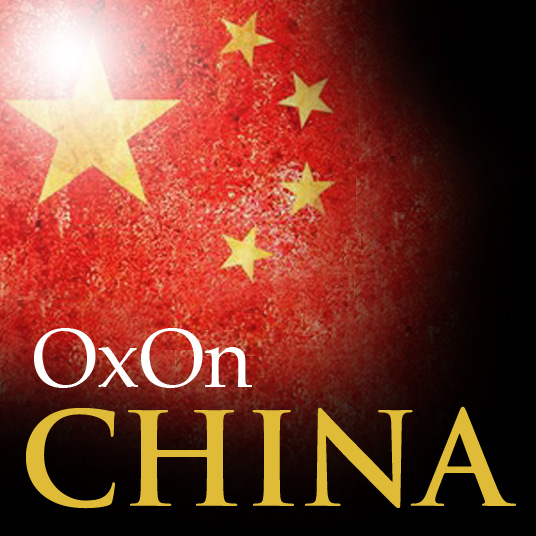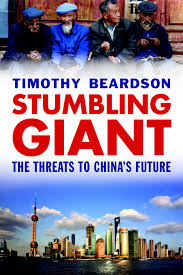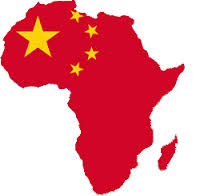
Exposing wrongdoing and controlling public opinion through online video in China
In this video [click on full post], a young woman sits on the floor tearfully telling her story: Yue Dan was on holiday in the southern city of Sanya with her husband. Returning to their car, the couple got into a dispute with a parking attendant. According to Yue, a group of men in suits arrived and started beating them. When the police arrived, they joined in beating the travelers without attempting to assess the situation and deaf to Yue’s pleas for mercy. The five-minute-long video ends with photos of the women’s injuries and videos shot by bystanders1.
Yue’s story is just one of a multitude of examples of how Chinese citizens are increasingly using online video to seek justice, retribution or recompense for wrongdoing, and build public support for their cause. However, public response is generally ephemeral and sporadic, and the authorities often aggressively act to control and prevent these attempts to harness the power of Chinese netizens.
The video, which implores media and web users to publicize Yue’s story and help her achieve justice, was posted to the microblogging platform Weibo on 12 February by a tiny blog called Sanya Hero. Although my current research involves tracking the flow of information and comments on Weibo, it is impossible in this case; the video was rapidly removed. A comment on the same blog less than ninety minutes later, thanks readers for forwarding the video, but instructs them to remain rational and wait for an official resolution.

China in the 21st century – not the superpower that some say it will be
This Wednesday at 5 PM, author Timothy Beardson will discuss his new book, “Stumbling Giant”, at the Institute for Chinese Studies. The book examines the challenges to China’s rise and discusses their impact and the policy prescriptions available to confront them.
The overwhelming majority of the literature in recent years has suggested that China will eventually occupy America’s recent role as the global superpower. While avoiding histrionic extremes such as eventual dominion or coming collapse, Mr Beardson disagrees, arguing that it is highly unlikely that China will become the world’s superpower in the 21st century.

Economic justice requires more independence, not less
A republican economy should aim at maximising the genuine independence of economic actors. Only then can corruption be tackled at the root.
In part this essay is a response to Stuart White’s call in his introduction to the Democratic Wealth series to challenge the relevance of republican ideas for thinking about how to build a citizens’ economy. I will first point to a significant potential weakness in contemporary republican political theory. There is a danger in the republican view of non-domination, namely the failure to recognise in relation to a republican economic order that it is necessarily an order of power. In one sense this view is perfectly consistent with the version of republicanism that has been proposed in recent times by Philip Pettit and Quentin Skinner, in so far as they licence interference by the state as a means of preventing non-domination. But, as emphasis is often important, there is a need to focus on the other side of the republican equation of freedom – the minimisation of dominance entails the maximisation of independence.
How can this goal of the maximisation of the independence of economic actors be squared with the idea of governed economy where the conduct of those actors is subject to regulation and even prohibition? I will argue that the primary purpose of economic governance in a republican economy should be to promote the independence of economic actors as a means of preventing the abuse of economic power and the corruption of public life.

Debating China’s North Korea policy
Following North Korea’s third nuclear weapons test in February this year, much attention has been paid to debates within China over its troublesome neighbour, with some suggesting severing ties to the North altogether. Do these discussions reflect a fundamental shift underway in China’s North Korea policy? Not necessarily.

China in Africa: More about Africa than China
Over the past decade, Chinese priorities have shifted. Before, foreign aid, investment and technology were an import. Now, each is an export. The speed and scope of this change—as Chinese firms, diplomats, traders and cash ‘go out’ in ever-increasing numbers—has ignited controversy and hyperbole. These debates rage in advanced economies in response to China’s rising clout and the acquisitions of global brands by its rapidly internationalising firms.
They are also at fever pitch in the emerging world—where China has become an important new financier, development partner, and source of foreign direct investment (FDI). This is nowhere more visible than in Africa, where Chinese engagement has received far more attention than seems warranted at first glance. Chinese FDI flows to Africa make up only around two to four percent of the country’s total outward investment each year. Chinese FDI stock on the continent is a fraction of investments in Europe and the United States. However, these figures are growing rapidly, buttressed by an explosion in trade volumes—nearly doubling in the past four years alone to an estimated $200 billion in 2012—as well as deepening diplomatic engagement, development assistance, and accelerating migration between the two regions.

Economic relations between China and the EU show promise but more should be done
After ten years of the EU-China Comprehensive Strategic Partnership, has it made any difference? Alas, the partnership has mainly delivered more meetings. In 2006 the two sides opened negotiations for a Partnership and Cooperation Agreement which are still on-going. But there are reasons to be optimistic, even though a more robust economic partnership would require a major change of approach by both sides.
The political relationship between these two giant economies remains cool, while the economic one has been stress-tested by the post-2008 Eurozone crisis.

Mr Xi’s conflicting priorities: how should we read China’s reform roadmap?
Xi Jinping has taken over the helm of China’s state apparatus as well as the Party, but where the new leadership will take the country remains uncertain. Recent developments give us an indication. Recently, the Party presented a new plan to reduce inequality and has implemented an anti-corruption campaign. This has – amongst other things – hit luxury goods sellers and upmarket restaurants hard. Mr Xi has also made the ‘Chinese Dream’ into the leitmotif of his politics in order to ‘realize the great rejuvenation of the Chinese nation’. Other than this, identifying a direction has revolved around looking at the backgrounds, characters and objectives of the new leaders, in particular Mr Xi, and to a lesser extent, Li Keqiang, the Party secretary.
But focusing on the individual tells us little about their real ability to affect outcomes.

Kickstarting taxation
George Osborne is cracking down on tax avoidance. After a scandal in which it has emerged that some major multinationals have paid little or no UK corporate tax, the head of Britain’s Treasury has announced his mission “to turn concern over tax avoidance into a catalyst for change”. Osborne, formerly known as the City-boys’ puppet in power, has turned into the Great Enforcer, riding his “new agenda of transparency” into Ethiopia, Kenya, Ghana, Uganda and Tanzania.
But the domestic scandal over tax avoidance – the outraged bluster of Margaret Hodge’s mock trial of the Great Avoiders before the UK Public Accounts Committee; David Cameron’s barely-veiled threat at Davos to corporations who needed to “wake up and smell the coffee”; UK Uncut’s shop-floor protests – has done little damage to its targets. Even Starbucks, which felt compelled to donate £10 million to the Exchequer, apparently because it had listened to customers’ concerns, has ended up paying remarkably little in public contributions.









